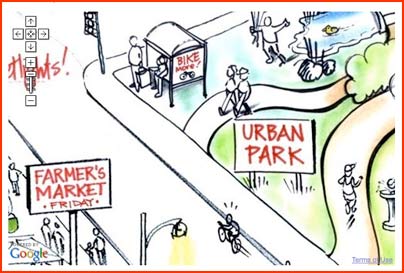
This news is brand new! Only a few days ago (May 17), ChangeLab Solutions became the new name of the national nonprofit organization formerly known as the Public Health Law & Policy. Either way, childhood obesity is a major concern.
By the old name and now by the new, ChangeLab Solutions actively works to transform neighborhoods, cities and yes, even entire states, so that everyone has greater opportunities for health and safety. This includes all communities. There is no place that couldn’t use improvement, because even the most tightly secured gated community is unhealthful in some way. When it comes to neighborhoods and people with few resources, their environments are unhealthful in different ways.
As before, and like other nonprofits, it is supported by grants and donations. The beneficiaries of the public service it offers are local and state health departments, appointed officials, elected representatives, advocates, and basically anyone interested in improving health conditions in their area. Policy strategies that concern nutrition, physical activity, and tobacco control are all in the ChangeLab Solutions wheelhouse.
In the area of tobacco control, the organization celebrates its biggest success so far, having accumulated over 10 years of experience in attacking the nicotine threat and become the legal resource center for that movement. The website says:
In California alone, our work in tobacco control has helped save $86 billion in healthcare costs and resulted in 25 percent fewer tobacco-related deaths… This experience positioned PHLP [now ChangeLab Solutions] to create a similar model for the movement to prevent childhood obesity.
This is important because there are similarities between tobacco and junk food designed to not only feed people, but to radically change their behavior by turning them into compulsive eaters — just as nicotine turns them into compulsive smokers.
Dr. Pretlow says:
Emerging evidence indicates that childhood obesity is not simply a matter of nutrition knowledge or sedentary lifestyle, but rather a disorder of brain physiology, actually an addiction, quite similar to addictions to tobacco, alcohol, and even drugs. Underlying stress, depression, boredom are instigators. Minority groups have more of these factors and other addictions because of them, as well.
The ChangeLab Solutions staff is made up of policy analysts, urban planners, and attorneys. They look at research and try to figure out, for instance, what actually is effective. For activists who want to go deep, the organization offers ways to help project developers discover the best locations for facilities, obtain financing, and so on, through community-tailored training, and even one-on-one consultation.
One of the website’s attractions is a cartoon-style map of an ideal community, where people can learn exactly what kinds of positive change are possible.
When a course of action is decided, ChangeLab Solutions offers fact sheets, toolkits, legal memos. The technical legal assistance is in such areas as risk assessment. Since no one wants to reinvent the wheel, they keep a library of model policies and laws. Each community is different, of course, but with these templates on hand, there is at least a starting place, a basic format that can be subtracted from or added to.
Local input and participation are all-important:
Every day, business owners and real estate developers make decisions that have tremendous impact on our health. Local government incentives can motivate them to make choices that promote access to healthier food and physical activity — by establishing healthier food stores and restaurants, building parks and playgrounds, and creating neighborhoods where it’s easier for residents to walk and bike to meet their daily needs.
It is generally accepted that a healthy diet and physical activity are important for obesity avoidance, regardless of what other factors might also be involved. But what inspires a child to actively engage in healthy eating and exercise? Does anyone really know? What motivates parents to clean up their act and set a good example? What encourages parents to put in the necessary work and develop the skills to deal with food and exercise issues?
And that’s just individuals. What about whole communities? Who gets to define what constitutes the common good, and who gets to decide how much coercion is justified in order to achieve it? Even if the end is universally acknowledged to be desirable, who decides what means are used?
How are whole masses of people, some of them quite large, persuaded to spend resources to make the community more livable for all? Ideally, a think tank thinks about how needed change really happens, not how we wish it could happen, or how some group with a vested interest believes it should be made to happen.
Your responses and feedback are welcome!
Source: “About Us,” phlpnet.org
Source: “Community Map,” nplanonline.org
Image of Community Map is used under Fair Use: Reporting.

 FAQs and Media Requests:
FAQs and Media Requests: 











